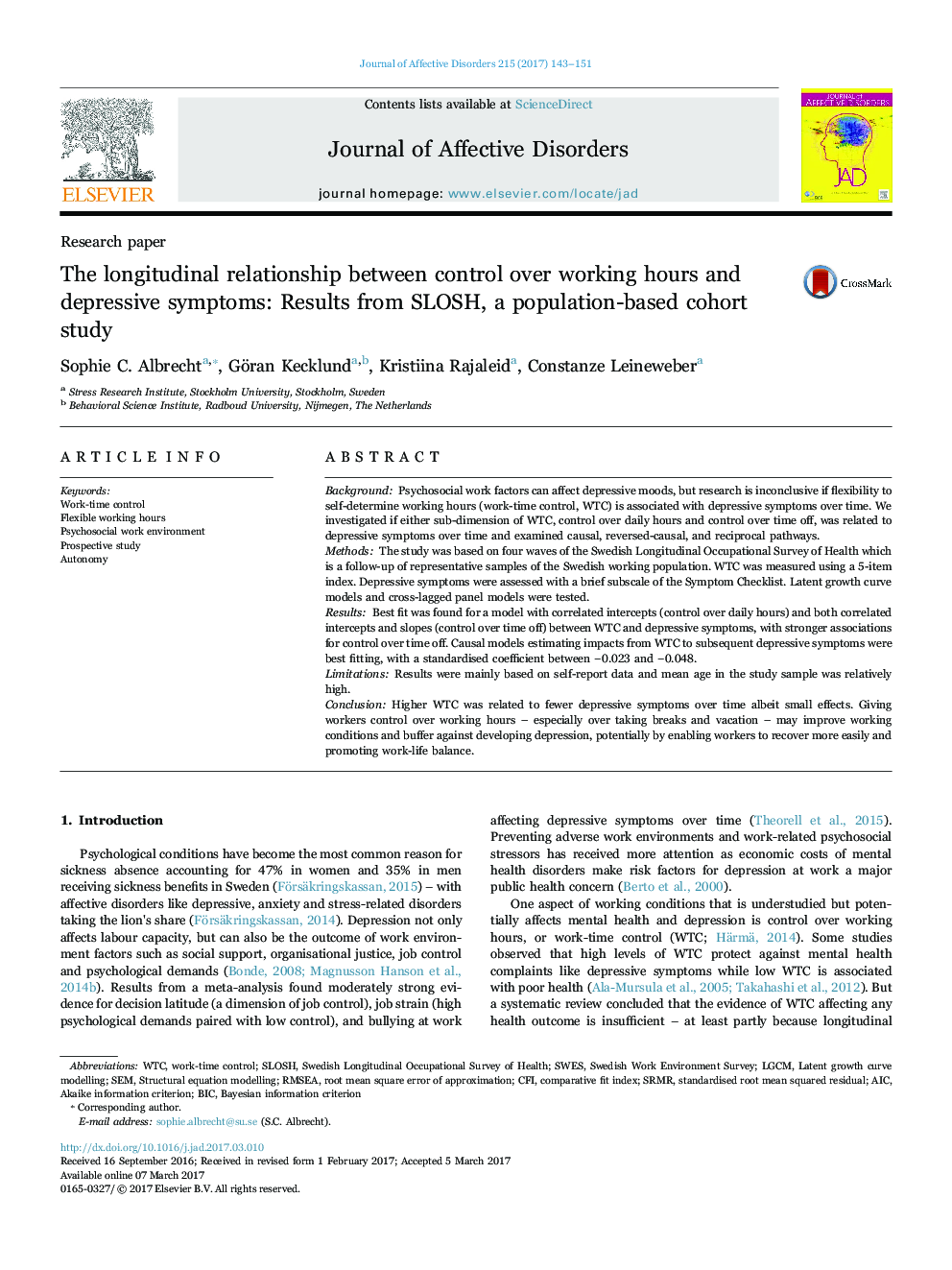| کد مقاله | کد نشریه | سال انتشار | مقاله انگلیسی | نسخه تمام متن |
|---|---|---|---|---|
| 5722338 | 1608110 | 2017 | 9 صفحه PDF | دانلود رایگان |

- The longitudinal association between work-time control and depressive symptoms was assessed.
- Causal, reversed-causal and reciprocal pathways were examined.
- Control over time off and daily hours was inversely associated with depressive symptoms over time.
- Control over working hours seems beneficial for workers' mental health.
BackgroundPsychosocial work factors can affect depressive moods, but research is inconclusive if flexibility to self-determine working hours (work-time control, WTC) is associated with depressive symptoms over time. We investigated if either sub-dimension of WTC, control over daily hours and control over time off, was related to depressive symptoms over time and examined causal, reversed-causal, and reciprocal pathways.MethodsThe study was based on four waves of the Swedish Longitudinal Occupational Survey of Health which is a follow-up of representative samples of the Swedish working population. WTC was measured using a 5-item index. Depressive symptoms were assessed with a brief subscale of the Symptom Checklist. Latent growth curve models and cross-lagged panel models were tested.ResultsBest fit was found for a model with correlated intercepts (control over daily hours) and both correlated intercepts and slopes (control over time off) between WTC and depressive symptoms, with stronger associations for control over time off. Causal models estimating impacts from WTC to subsequent depressive symptoms were best fitting, with a standardised coefficient between â0.023 and â0.048.LimitationsResults were mainly based on self-report data and mean age in the study sample was relatively high.ConclusionHigher WTC was related to fewer depressive symptoms over time albeit small effects. Giving workers control over working hours - especially over taking breaks and vacation - may improve working conditions and buffer against developing depression, potentially by enabling workers to recover more easily and promoting work-life balance.
Journal: Journal of Affective Disorders - Volume 215, June 2017, Pages 143-151